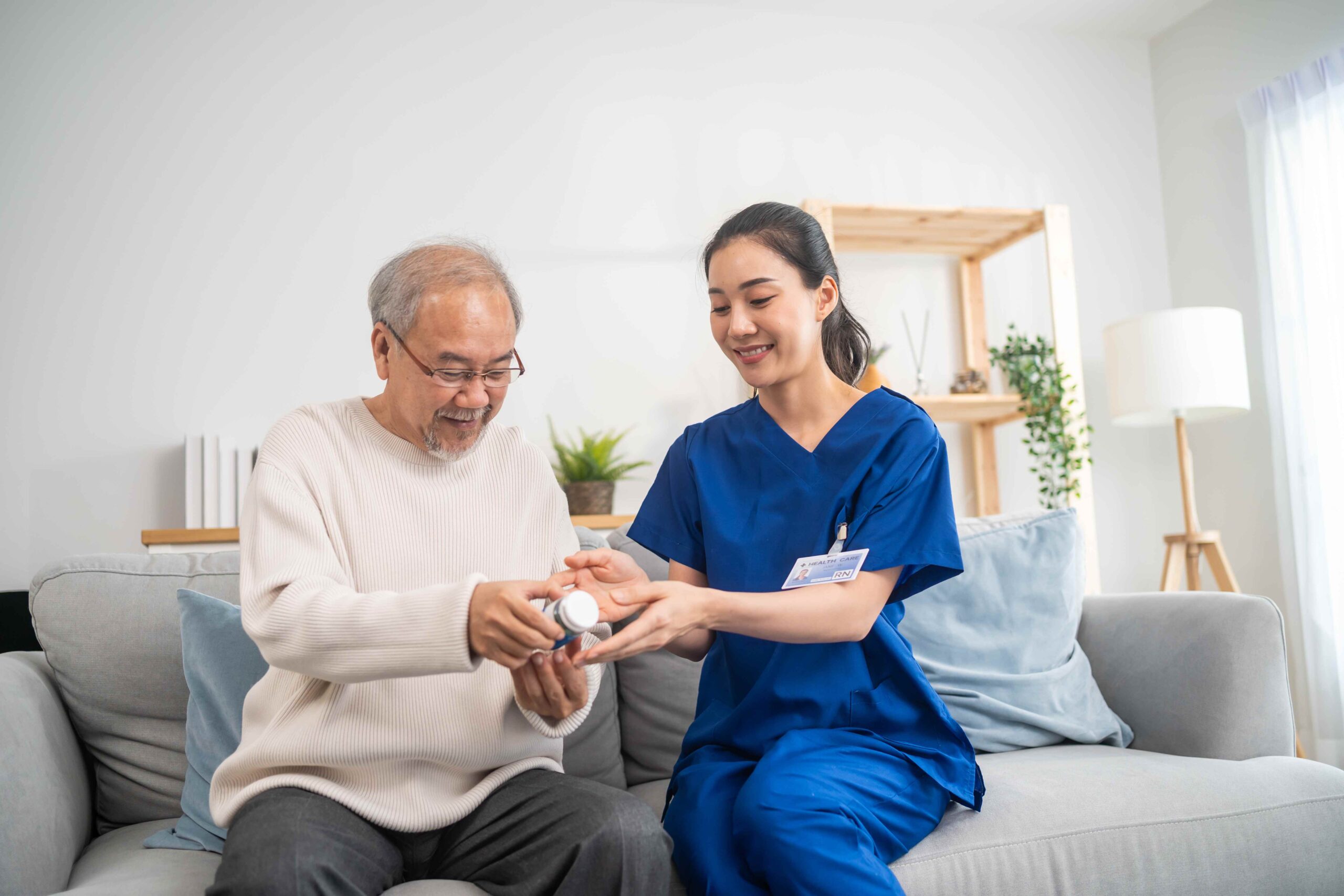Understanding Medication Assisted Treatment
At Life Line Services, we’re all about helping you turn your life around with a mix of treatments that work. One of our go-to methods is Medication Assisted Treatment (MAT), a game-changer in the fight for long-term recovery.
What’s MAT All About?
Medication Assisted Treatment (MAT) isn’t just about popping pills. It’s a blend of meds, counseling, and behavioral therapies that tackle the whole person, not just the symptoms. Think of it as a full-body workout for your recovery. We’re talking about dealing with the emotional and psychological stuff too, not just the physical cravings. Want to know more? Check out our article on medication assisted treatment for addiction.
What Makes Up MAT?
MAT is all about you. Your treatment plan is as unique as your fingerprint, tailored to your substance use history and health needs. The goal? To get your brain chemistry back on track, block those feel-good effects of alcohol or opioids, ease cravings, and get your body functioning normally again.
We use FDA-approved meds like Vivitrol, Suboxone, and Methadone. These aren’t just fancy names—they’re lifesavers. They help curb cravings, cut down on relapse chances, and make withdrawal a bit more bearable. Curious about these meds? Dive into our article on medication assisted treatment options.
But hey, MAT isn’t just about the meds. It works best when paired with counseling and behavioral therapies. This combo helps you dig deep into why you got hooked in the first place and teaches you new ways to cope. Want the scoop on our counseling services? Head over to our article on individual counseling techniques.
At Life Line Services, we get that recovery isn’t a one-size-fits-all deal. It’s a personal journey that needs a full-on, customized approach. We’re here to walk that path with you, every step of the way.
Why Medication Assisted Treatment Rocks
Medication Assisted Treatment (MAT) is a game-changer for tackling substance abuse. It’s all about meeting folks where they are, balancing brain chemistry, and making withdrawal less of a nightmare. Here’s why MAT is worth considering:
Personalized Care
MAT isn’t a one-size-fits-all deal. It’s customized to fit each person’s history with substance use and their health issues. This personal touch boosts the chances of sticking with the program and kicking the habit for good. It’s the heart of our approach to opioid addiction and medication-assisted treatment for recovery (Harbor Care).
Balancing Brain Chemistry
MAT uses FDA-approved meds like Vivitrol, Suboxone, and Methadone. These aren’t just fancy names; they help curb cravings, cut down on relapse chances, and get your body back on track. They balance brain chemistry, block the highs from alcohol or opioids, and ease those nagging cravings. For more details, check out our resources on long-term benefits of MAT and MAT options.
Making Withdrawal Bearable
The meds used in MAT also make withdrawal less of a horror show. Methadone, for example, is a long-acting opioid that helps with cravings and normalizes body functions messed up by drug use. Buprenorphine, another option, reduces cravings and withdrawal symptoms without the extreme highs and lows. Naltrexone blocks the high from opioids and cuts down on cravings (BHG Recovery). For more info, visit our pages on acute care services and managing high-dose opiate withdrawal.
To wrap it up, MAT is a triple threat: it’s personalized, it balances brain chemistry, and it makes withdrawal easier. By combining these elements, MAT gives folks a better shot at long-term recovery.
FDA-Approved Medications for MAT
Medication Assisted Treatment (MAT) uses FDA-approved medications like Vivitrol, Suboxone, and Methadone. These meds help curb cravings, cut down on relapse chances, and ease withdrawal symptoms, making detox a bit smoother Harbor Care.
Vivitrol
Vivitrol, or Naltrexone, blocks opioid receptors, stopping cravings and preventing that “high” feeling. It’s a long-acting shot, perfect for folks who have trouble sticking to a daily pill routine BHG Recovery.
Suboxone
Suboxone, known as Buprenorphine, is a partial opioid agonist. It helps reduce cravings and withdrawal without the extreme highs and lows of street drugs. It’s great for less severe addiction cases and is usually given in doctor’s offices or opioid treatment programs (OTPs) BHG Recovery. For more details, check out our article on suboxone treatment for opioid addiction.
Methadone
Methadone is a full opioid agonist that helps ease cravings, normalizes body functions messed up by illicit opioids, and reduces the euphoric effects of other opioids. It’s given in tightly regulated OTPs and is safe and effective when used as directed BHG Recovery.
These FDA-approved meds are a key part of medication assisted treatment for addiction and have shown to be a big help in long-term recovery. But remember, meds alone aren’t enough. They should be paired with counseling. Our individual counseling techniques offer extra support for those on the road to recovery.
Why Counseling Matters in MAT
Counseling is a big deal in Medication Assisted Treatment (MAT) programs. It’s not just about popping pills; it’s about a full-on approach to recovery that includes behavioral therapies, digging into the root cause of addiction, and learning new ways to cope. Let’s break it down.
Behavioral Therapies
Behavioral therapies are the backbone of MAT programs. According to Harbor Care, MAT works best when paired with counseling and behavioral therapies. This combo gives folks a solid foundation for long-term recovery by helping them tackle the root causes of their addiction and pick up new coping skills.
Psychosocial treatment, also known as behavioral health treatment, is a must-have alongside all drug therapies for opioid use disorder (OUD). Patients who get this kind of treatment do better than those who don’t, as noted by Pew Trusts. Want to know more about the perks of mixing medication with psychosocial treatment? Check out this link.
Getting to the Root Cause
Figuring out and dealing with the root cause of addiction is a big part of getting better. Through counseling, people can uncover the deep-seated issues that led them to substance abuse. This deep dive into personal history and triggers helps create a more personalized treatment plan, making recovery more doable and lasting.
This thorough approach to healing is why our individual counseling services are a key part of our MAT program. By addressing root causes, we help people understand their addiction better, setting the stage for more effective treatment and long-term recovery.
Learning New Coping Skills
Picking up new coping skills is a crucial part of the recovery journey. These skills help folks manage stress, avoid triggers, and handle cravings in a healthy way. By learning these skills, individuals are better prepared to stick with their recovery even after finishing the MAT program.
Our counselors work closely with patients to develop these must-have coping skills. From stress management techniques to healthy lifestyle habits, we offer the support our patients need to navigate their recovery journey successfully. For more on our holistic approach to treatment, visit our page on comprehensive opioid addiction treatment.
In short, counseling is a key part of MAT, complementing the medication side of things by tackling the behavioral and psychological aspects of addiction. This all-in-one approach ensures that people get the complete care they need for lasting recovery.
How MAT Helps You Stay Clean for Good
At Life Line Services, we get it—everyone’s path to kicking addiction is different. That’s why we’re all in on Medication Assisted Treatment (MAT) for the long haul. Our MAT program isn’t just about masking the symptoms; it’s about digging deep to tackle the root causes and setting you up for a healthier future.
Less Chance of Slipping Up
One of the biggest perks of MAT is that it seriously cuts down on the chances of falling back into old habits. The Substance Abuse and Mental Health Services Administration (SAMHSA) backs this up, showing that MAT works wonders in clinical studies and slashes the need for inpatient detox.
We offer meds like Suboxone, which the US Food and Drug Administration has given the thumbs-up for treating opioid abuse. This means they’ve been put through the wringer and proven to be both safe and effective.
Better Social Life
MAT isn’t just about beating addiction; it’s about living your best life. Our all-in approach to recovery includes helping you get back on track socially.
Medication Assisted Treatment helps you rebuild personal relationships and get back into the swing of things in society, marking a big step towards overall better health. This holistic approach lets you take charge of your life and mend relationships that might’ve taken a hit because of substance use.
Lower Risk of Catching Diseases
A bonus you might not think about with MAT is that it lowers the risk of catching nasty diseases linked to substance use, like HIV and Hepatitis C.
SAMHSA points out that by cutting down on relapse, MAT for opioid use disorder also lowers the risk of getting these diseases (American Addiction Centers).
The Department of Health & Human Services has flagged Opioid Use Disorder (OUD) as a big problem in the U.S., and OUD has been tied to the spread of these diseases in many rural and suburban areas (NCBI).
At Life Line Services, we’re all about helping you beat substance use disorders in a safe, supportive space. Our MAT programs, along with our individual counseling services and other wellness options, offer a full-on approach to recovery. If you or someone you care about is struggling with substance use, reach out to us to see how we can help you get back on track.
Evolution of MAT Over Time
The story of Medication Assisted Treatment (MAT) is one of change and growth. From its early days to the present, MAT has become a key player in helping people recover from addiction.
Historical Development
Back in the 1960s, MAT was born to tackle opioid use disorder (OUD). Methadone maintenance was one of the first treatments. By the 1970s, federally-funded programs started popping up, and the term “maintenance treatment” made its debut in the Narcotic Addict Treatment Act of 1974.
Recognition as Medical Condition
Fast forward to the 1990s, and things took a turn. The National Institutes of Health stepped in, saying opioid addiction wasn’t about willpower or morals—it was a treatable disorder. This was a game-changer. It helped reduce the stigma around MAT and pushed the idea that addiction is a medical condition. This shift opened the door to more MAT options and treatments.
Widened Treatment Options
With addiction recognized as a medical issue, new treatments and medications for MAT started to roll out. Accreditation systems for opioid treatment programs (OTPs) were set up to make sure MAT services were top-notch across the U.S.
But even with MAT proving its worth, many folks can’t get the help they need. Insurance coverage is spotty, and there aren’t enough qualified medical pros. Only 23% of publicly funded programs offer FDA-approved meds for substance use disorders, and less than half of private programs have doctors prescribing these meds (Pew Trusts).
At Life Line Services, we’re working to close this gap. We offer personalized Medication Assisted Treatment options to those who need it. We believe in MAT’s power to support long-term recovery and are dedicated to making these services available to everyone.
Accessing MAT and Insurance Coverage
Getting the benefits of medication-assisted treatment (MAT) for long-term recovery involves a few key things: keeping your info private, dealing with insurance, and overcoming access hurdles.
Keeping It Private
At Life Line Services, we know how crucial privacy is during recovery. Your MAT treatment stays confidential. According to SAMHSA, the Confidentiality Regulation, 42 Code of Federal Regulations (CFR) 2, your MAT-related health info gets extra protection. This means a MAT program can’t spill the beans about your substance use disorder (SUD) without your okay. (American Addiction Centers)
Insurance Coverage
Here’s some good news: most health insurance plans cover at least part of MAT treatment, sometimes even all of it. Thanks to the 2008 Mental Health Parity and Addiction Equity Act, group health insurance plans have to offer the same benefits for SUDs as they do for medical or surgical care. (American Addiction Centers)
Insurance companies are catching on to how effective MAT is for treating substance use disorders. They’re starting to offer more coverage options for these evidence-based treatments. (MATClinics)
Access Hurdles
Even though MAT works well, many folks can’t get it due to limited insurance coverage and a shortage of qualified medical staff. Only 23% of publicly funded treatment programs offer any FDA-approved meds for substance use disorders. Less than half of private treatment programs have doctors who prescribe these meds. (Pew Trusts)
At Life Line Services, we’re working to fix this. We offer comprehensive opioid addiction treatment options, including MAT, to help you beat addiction and get your life back. Whether you need acute care services, individual counseling, or suboxone treatment for opioid addiction, we’re here to help.
The goal is to make sure everyone who needs this life-changing treatment can get it. By understanding privacy rules and figuring out insurance, we can help you start your journey to a healthier, happier life.
MAT for Opioid Use Disorder
Epidemic Status
Opioid Use Disorder (OUD) is a massive problem in the U.S., with the Department of Health & Human Services calling it an epidemic. Around 2.6 million Americans are dealing with OUD, and that includes 591,000 folks hooked on heroin. This crisis has also fueled the spread of HIV and hepatitis C, especially in rural and suburban areas.
Impact on Communities
The opioid crisis has hit communities hard, especially in places like Illinois. Opioid overdose deaths in Illinois jumped over 50% from 1,382 in 2015 to 2,199 in 2017. In 2017 alone, opioids were behind more than 80% of drug overdose deaths, with about 7,802 opioid-related deaths between 2013 and 2017 (NCBI). The fallout is brutal, affecting families, schools, and businesses.
Role of MAT in Recovery
Medication Assisted Treatment (MAT) is a game-changer in battling OUD. It uses FDA-approved meds like methadone, buprenorphine, and naltrexone to help folks manage cravings and ease withdrawal symptoms. This makes it easier for them to focus on getting better.
MAT has been proven to boost recovery rates from OUD. It cuts down on deaths, improves social lives, reduces drug use, and generally makes life better for those struggling with OUD. The long-term benefits of medication assisted treatment for addiction recovery are clear and convincing.
But here’s the kicker: many people can’t get MAT because of poor insurance coverage and a lack of trained medical staff. Only 23% of publicly funded treatment programs offer any FDA-approved meds for substance use disorders, and less than half of private treatment programs have doctors who prescribe these meds.
At Life Line Services in Greenville, SC, we know how crucial it is to provide access to this life-saving treatment. Our team is dedicated to offering a variety of medication assisted treatment options tailored to each person’s needs. We believe in MAT’s power to support long-term recovery and help people live fulfilling, substance-free lives.
MAT: Your Path to Real Recovery
At Life Line Services, we’re all about helping you turn your life around with methods that actually work. We mix counseling with personalized treatment plans and swear by Medication Assisted Treatment (MAT) for long-term recovery.
What Works: Evidence-Based Methods
Medication-assisted treatment (MAT) isn’t just some fad. It’s a combo of meds, counseling, and behavioral therapies that’s been proven to work for years. Think of it as the gold standard for treating substance use disorders (BHG Recovery). We’re committed to using these tried-and-true methods in our programs. Want to know more? Check out our article on how effective MAT really is.
Counseling: The Secret Sauce
Counseling isn’t just a nice add-on; it’s a game-changer. Patients who get counseling alongside their meds do way better than those who don’t (Pew Trusts). We mix in individual counseling, spiritual counseling, and other therapies into our MAT programs. Curious? Dive into our articles on individual counseling for mental health and spiritual counseling in recovery.
Tailored Just for You
One-size-fits-all? Not here. Research shows that combining meds with counseling beats doing either one alone (Pew Trusts). At Life Line Services, we get that everyone’s different. So, we customize treatment plans to fit your unique needs. Our goal? To tackle the root causes of addiction and set you up for long-term success. For more on our holistic approach, check out how we treat opioid addiction.
Making MAT Accessible
Despite how well MAT works, many people can’t get it due to lousy insurance coverage or a lack of qualified doctors. At Life Line Services, we’re working to change that. We team up with insurance providers and have a crew of qualified medical pros to make sure you get the care you need. Want to know how to get started? Read our article on MAT options.
Ready to take the first step? We’re here to help you every step of the way.







